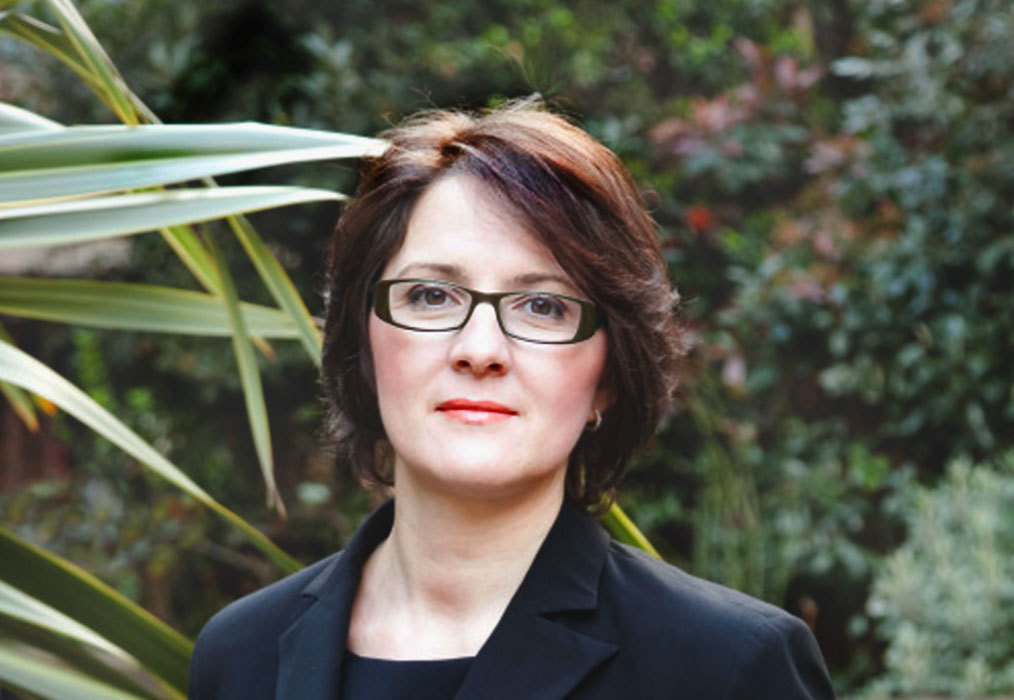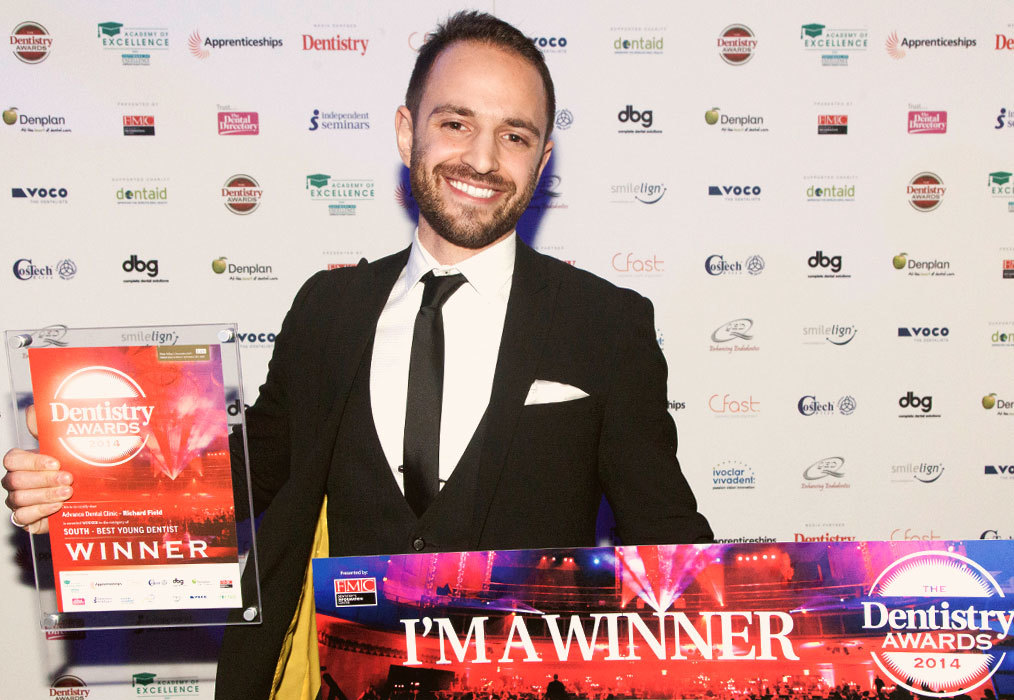With the current opportunities available to young dentist’s in the profession, the rewards come to those who chase them.
Driving for success will lead you down a successful career path. But what makes you stand out from the crowd? We present you with advice from leading professionals on how to get to the top.
Simon Chard
Simon Chard qualified in 2012 with Honours from King’s College London Dental Institute; he was awarded the prestigious Academy of Operative Dentistry Award given to the top student in the year for clinical dentistry. Simon is a member of a number of associations including the Association of Dental Implantology (ADI) and currently sits on the young membership and communications committees of the British Academy of Cosmetic dentistry (BACD). Simon won Best UK Young Dentist at The Dentistry Awards 2015. www.drsimonchard.com.
- Invest in magnification – in my opinion it should be a requirement of all undergraduate dentists to purchase a set of dental loupes at the start of their training. Not only does the magnification that dental loupes provide allow you to see in much greater detail, but it also forces the head into a more ergonomic position limiting neck and back pain
- Build a portfolio – it is all well and good telling someone you can do something, but as the saying goes ‘a picture says 1000 words’ and thus being able to show a potential employer what you can do clinically is so much more powerful! In order to do this, you must buy a dental camera set up (camera body, macro lens and external flash) and learn how to use it
- What’s your five-year plan? – dentistry is fantastic in that there are a multitude of different types of dentist you can be. It is, however, important that you know in which direction you are heading. Where do you want to be in five years? Once you have decided where you want to go you need to plan the route. The best way to get there in the quickest way possible, is to speak to someone who has already done it
- What’s your unique selling point? – it is vital to differentiate yourself from other dentist’s young or old applying for the same associate positions as you- everyone has a BDS! How do you do this? By showing passion for your career – by investing in your postgraduate education to learn from the best so that you can excel in your field and provide your patients with the highest quality care
- Network – unfortunately the adage ‘it’s not what you know, it’s who you know’ can often be true in dentistry and job roles will often not reach the pages of dental recruitment websites or the BDJ. In order to meet potential future employers, you need to put yourself out there within the dental community. Go to conferences, go to regional meetings, join associations such as the British Academy of Cosmetic Dentistry (BACD) and talk to as many people as possible.
Reena Wadia
Reena Wadia BDS Hons (Lond) MJDF RCS (Eng) qualified from Barts and The London with the prestigious Gold Medal. Following general practice, Reena worked as a senior house officer in both restorative dentistry and oral surgery. Currently, she is completing her part-time specialty training in periodontology at Guy’s Hospital. She is also working in general practice at Harley Street Dental Group and Woodford Dental Care. www.reenawadia.com.
- Keep up your record keeping skills:
Easy to pick up bad habits
Time spent on detailed notes save hours of stress if the patient is not satisfied
Have specific times during each appointment to complete notes
Make the most of templates - Get published:
Write about topics that excite and interest you
Pick your target audience
Draw out an outline to structure your article
Work on it over time – several drafts
Partner up with an expert
Keep trying if rejected initially
Gain feedback from readers - Get good at communicating:
Crucial to a successful and stress-free relationship with your patients
Listen to your patients – pay attention to voice tone and body language
Establish expectations – these will need correcting if too high!
Treatment decisions should be made after a thorough and balanced discussion
Remember your patient is an individual, not a set of teeth with a treatment plan - Get to grips with clinical audit:
Identifies strengths and weaknesses, reduces errors, encourages change and shows care is consistent with good practice
Steps – Pick a problem/objective, identify a gold standard to compare against, data collection and analysis, highlight areas for improvement, implement change, re-audit.
Aida Mujan
Aida Mujan is Covent Garden Dental Practices’ in-house CQC adviser, a registered manager and a chartered business psychologist with an MSc in occupational psychology from University of London who has served this practice for over 10 years. Covent Garden Dental Practice won Best Team – London, Best Patient Care – London, Best Team UK and Best Patient Care UK at The Dentistry Awards 2015.
- Make an impression – making the first impression starts with the CV. The role of a CV is to get you an interview not to write your autobiography. It gives you the chance to meet the practice recruitment panel and show them how suitable you are for the role
- Be concise – what do you need to do when you send in your CV? – The first thing to remember is that a CV should be concisely composed and relevant to the role in the practice – a maximum of two sides excluding the covering letter. It never ceases to amaze me how many applicants still send in CVs well over two sides and I will never forget one that was over 20 pages
- Be specific – the way you design your CV will depend on which stage your career has reached, the specific role advertised and the type of practice you are applying to. For example, after introducing themselves via a brief personal statement, a recent graduate may highlight their educational qualifications first to demonstrate their academic achievements. More professionally experienced candidates may focus on their employment history to emphasise their suitability for the role offered
- Do research – writing an impressive covering letter encourages recruiters to read your CV more attentively, so do not underestimate the value of an effective covering letter. A covering letter should reveal how extensively you have researched the background of the practice, indicating that you have considered how well you could contribute to its services and collaborate with the current team.
As well as demonstrating your professional knowledge and practical capabilities your CV and covering letter should also include clear evidence of effective communication skills, employment flexibility, positive attitude and most crucially, ethical practice.
David Houston
David Houston qualified from Dundee University in 1985 and is joint principal of the largest single-site practice in the UK. His practice won the prestigious ITV/BDA Practice of the Millennium Award in 2000. Since then David has written a series of articles for Private Dentistry and Aesthetic Dentistry Today. David is the retained dentist for ITV television and BBC Radio and winner of Wow! Awards 2008. He is chair of the Private Dentistry Awards and in 2014 was rewarded for his Outstanding Contribution to Private Dentistry.
When assessing a submitted CV, I always look for certain features:
- Have they researched our practice and do they thus appreciate the nature of the post beyond the basic description given in the advertisement. Therefore, have they given due thought to their own suitability for the position? Plus, do their career ambitions and directions suit the practices ethos?
- Can I ascertain something of the candidate’s personality in their CV? – Have they allowed their character to ‘shine’ through? It is a competitive job market in dentistry today and in a people based profession it helps to differentiate applicants if one appears to have that ‘certain something’.
In the days before so many online applications, this could often be assessed in part by the hand-written covering letter sent with the CV. However, now it is best sought in the personal profile provided by the applicant.
- Consequently, my advice would be to provide the prospective employer with a summary of your character, achievements, ambitions and interests, possibly with a (slight!) touch of humour where appropriate. This should help establish your well-rounded personality and character making you a memorable candidate
- A quality head and shoulders photograph can also help with putting a face to a name and is something I am noting more of in the applications we receive at our practice.
Our Bristol practice is currently seeking a six-month maternity cover locum, so I encourage any reader to try-out their CV writing skills with an application using the above techniques and see if they prove successful!
Richard Field at Dentistry 16 – Stars of Dentistry
You may be interested in hearing Richard Field’s lecture ‘Crash course to being a young dentist – VT and beyond!’ at Dentistry 16: Stars of Dentistry in June. Richard won Best Overall Young Dentist at the Dentistry Awards 2014 and currently works in a private practice in central London.








